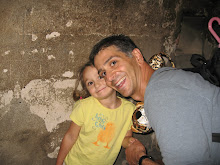Among the allegations about childhood sexual abuse by Catholic priests in Europe earlier this month, Father Raniero Cantalamessa caused further scandal. He likened the media’s interest in the story to anti-semitism. The outrage was intense, particularly among Jewish groups: how could anyone compare the experience of Holocaust victims to the publication of credible accusations?
Father Cantalamessa fell into a common trap regarding language use. A staple among apologists for the Church is the idea that anti-Catholicism is the last religious prejudice tolerated by the mainstream culture. Prejudices against all other religions are considered politically incorrect; but denigration of Catholicism is still countenanced. Hence, anti-Catholicism has become the anti-semitism of our age, they argue. Father Cantalamessa mangled the argument, however.
But the problem was greater than simply one person’s clumsiness. Languages develop within groups of people, and insiders become used to the group’s expressions, arguments, and stories. The group members become so habituated to their own language that they can succinctly allude to it, sometimes with a mere word. The problem, as Father Cantalamessa discovered, is when they do so with outsiders, who do not share a similar background.
One theory of the novel is that it is a genre that represents the society’s many languages. The author brings together the speech of different groups, and puts them in dialogue with each other. The author can do this by having characters that are insiders. Their statements naturally reflect the group’s opinions and thus contain the group’s language. But the author can also do so by imbedding the statements in the prose, by “citing without quotation marks.” If you listen to passages, you can tell that the narrator is making indirect reference to someone else’s words.
When done right, the novel’s collision of languages yields fruitful results. With all due respect to Alanis Morisette, irony is not “rain on your wedding day.” Irony is the literary technique of making a statement that conveys the opposite meaning. Irony, in other words, is the technique of taking insiders’ language and revealing its artifice: its presuppositions, its biases, and omissions. And irony highlights the flaws in their argumentation.
Despite the fact that many editorial writers try to be ironic, irony is actually a difficult technique. But Father Cantalamessa perfected it, probably on accident.
Sunday, April 18, 2010
Subscribe to:
Comments (Atom)



